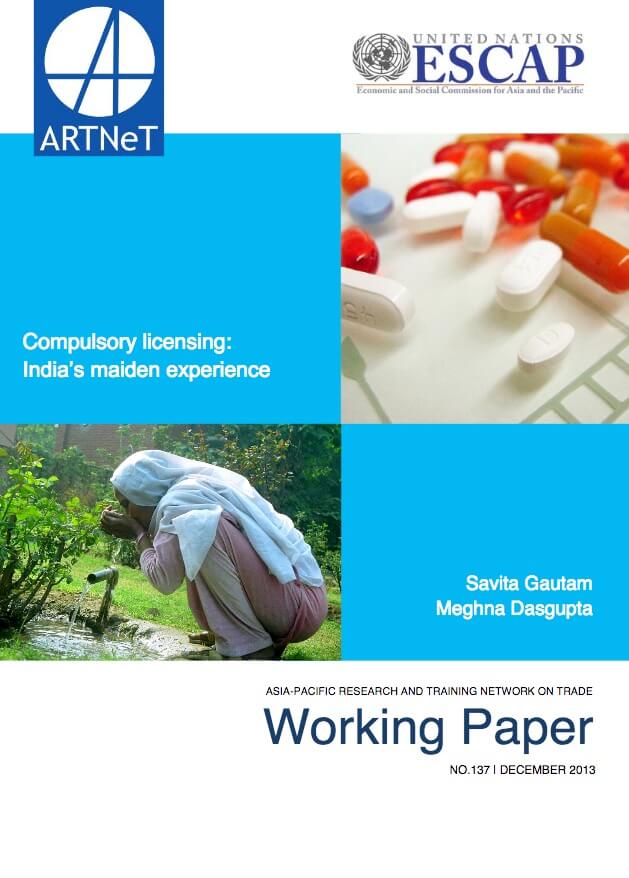Compulsory licensing: India’s maiden experience

Under the Agreement on Trade Related Aspects of Intellectual Property Rights (TRIPS) all parties to the agreement are allowed flexibility in issuing licenses for manufacturing pharmaceutical drugs, in line with their public policy objectives. The licenses may be issued under certain conditions, even if the patent holder (innovator) has an exclusive right to the markets. India made use of this flexibility in March 2012 when it granted its first compulsory license to a domestic company for manufacturing and selling a generic version of an anti-cancer drug. This action was contested at the Intellectual Property Appellate Board, but in March 2013 the final decision was in favor of the issuing of the compulsory license. This paper details the first attempt by the Indian patent system to strike a balance between the innovator’s legal and economic rights and the public interest policies of the Government. The paper attempts to set out the various issues and challenges related to this case. An assessment of the compulsory licensing provisions under the TRIPS agreement and the Indian Patent Act shows that the intellectual property regime in India is World Trade Organization (WTO) compatible, and that public health interests need not always be compromised. The authors reason out the possible implications for the various stakeholders through a cost-benefit analysis approach
